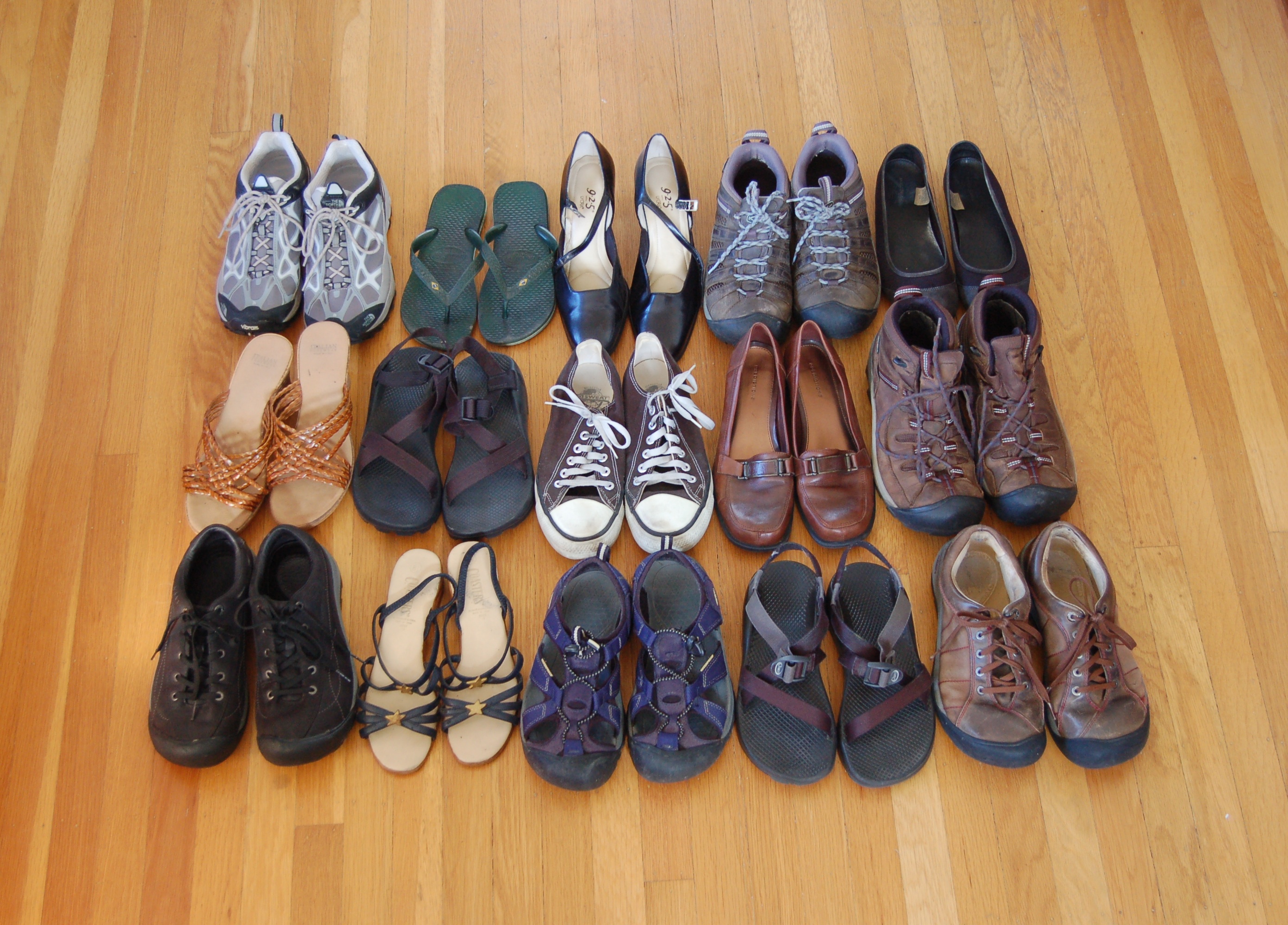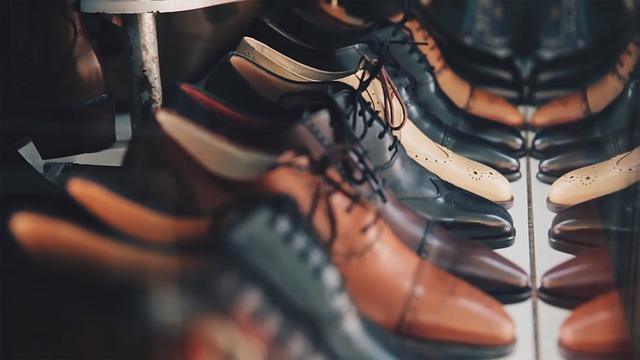Are you wondering how many shoes you should own? It’s a common question, and in this article, we’re going to dig into the topic and provide some helpful insights. So, let’s lace up our shoes and embark on this exciting journey together!
Thank you for reading this post, don't forget to subscribe!When it comes to shoes, opinions vary widely. Some people believe in having a shoe for every occasion, while others prefer a minimalistic approach. The truth is, the number of shoes you should own depends on your lifestyle, preferences, and needs. So, let’s explore the factors that can help you determine the ideal number of shoes to have in your collection.
But first, let’s tackle the big question: why does the number of shoes even matter? Well, having the right shoes for different activities can enhance your comfort, performance, and style. Whether it’s sneakers for sports, boots for hiking, or dress shoes for special events, having the appropriate footwear can make a significant difference. So, let’s dive deeper into this fascinating topic and discover how many shoes you actually need.
Looking to build a shoe collection? Here’s a guide to help you determine how many shoes you should own:
- Assess your daily needs and lifestyle.
- Diversify your collection with shoes for different occasions.
- Consider the climate and seasonal variations.
- Invest in quality and versatile footwear.
- Don’t forget to prioritize comfort!
Remember, everyone’s needs are different, so find a shoe collection that suits your lifestyle and personal style.

How Many Shoes Should I Own?
When it comes to shoes, it can be tempting to buy every style, color, and trend that catches your eye. But how many shoes do you really need? Finding the right balance between practicality and style is key. In this article, we will explore the factors to consider when determining the ideal number of shoes for your wardrobe.
The Importance of Functionality
One of the first things to consider when deciding how many shoes to own is your lifestyle and daily activities. Do you spend most of your time in a professional setting or do you have an active lifestyle that requires athletic shoes? Assessing your needs will help you determine the types of shoes you should prioritize in your collection.
If you have a professional job or frequently attend formal events, it’s important to have a few pairs of dress shoes, such as loafers, pumps, or oxfords. These versatile styles can be paired with various outfits and will ensure you always have appropriate footwear for formal occasions.
For those with an active lifestyle, investing in a good pair of athletic shoes is essential. Whether you’re a runner, a gym enthusiast, or enjoy outdoor activities, having the right athletic shoes will provide the necessary support and comfort for your chosen activities.
Choosing Shoes for Different Seasons
The weather and seasons play a significant role in determining the number of shoes you should own. Depending on where you live, you may experience extreme temperatures, rain, or snow. It’s important to have shoes that are suitable for these weather conditions to keep your feet comfortable and protected.
In warmer months, having a variety of sandals, flats, and sneakers is ideal. These shoes will keep your feet cool and comfortable during hot weather. Consider adding a few pairs in different colors and styles to match your outfits.
As colder months approach, it’s time to invest in boots. Having a few pairs of boots in different styles, such as ankle boots, knee-high boots, and snow boots, will ensure you’re prepared for any winter weather. Remember to opt for waterproof materials and warm linings to keep your feet dry and cozy.
Quality Over Quantity
Instead of focusing on the number of shoes you own, it’s important to prioritize quality. Investing in well-made shoes that are designed to last will not only save you money in the long run but will also ensure your feet are well-supported and comfortable.
When shopping for shoes, look for reputable brands that use high-quality materials and craftsmanship. Taking care of your shoes by regularly cleaning and storing them properly will also extend their lifespan.
By prioritizing quality over quantity, you can create a well-curated shoe collection that consists of versatile and durable styles that will last for years to come.
How Many Shoes Should I Own? – Tips for Building a Functional Shoe Collection
Now that we have explored the factors to consider when determining how many shoes you should own, let’s dive into some tips to help you build a functional and stylish shoe collection.
Assess Your Wardrobe
Before adding new shoes to your collection, take a close look at your wardrobe and determine your most-worn outfits. This will give you an idea of the types of shoes that would best complement your existing clothing. Focus on versatile styles that can be dressed up or down to maximize their wearability.
Consider the color palette of your wardrobe as well when choosing shoes. Opting for neutral shades, such as black, brown, or nude, will ensure your shoes can be easily paired with a variety of outfits.
Additionally, take note of any gaps in your current shoe collection. Are there certain styles or occasions where you find yourself lacking appropriate footwear? This will guide you when making new purchases.
Invest in Classic Styles
When building a shoe collection, it’s important to invest in classic styles that stand the test of time. These timeless pieces will serve as the foundation of your collection and can be paired with a variety of outfits and trends.
Some essential styles to consider include a pair of black pumps, nude flats, white sneakers, black ankle boots, and a comfortable pair of loafers. These versatile options will cover a range of occasions and can be easily dressed up or down.
While it’s fun to experiment with trendy shoe styles, remember that trends come and go. It’s best to reserve a small space in your collection for these statement pieces and focus on building a core collection of classic styles.
Maintain Your Shoe Collection
To ensure your shoe collection remains functional and well-maintained, it’s important to take proper care of your shoes. This includes regular cleaning, polishing, and storing them correctly.
Each type of shoe requires different care. For example, leather shoes should be polished regularly to maintain their shine and prevent cracking. Athletic shoes benefit from occasional deep cleaning to remove dirt and odor.
Invest in shoe storage solutions such as shoe racks or clear plastic containers to keep your shoes organized and protected. Avoid stacking shoes on top of each other, as this can cause damage.
How Many Shoes Should I Own? – Expert Advice and Recommendations
Now that we’ve discussed the factors to consider and tips for building a shoe collection, let’s hear from experts in the fashion industry who share their advice and recommendations.
What Fashion Experts Say
“Aim for a shoe collection that covers all your lifestyle needs. Invest in classic styles that can be worn season after season and prioritize quality over quantity.” – Sarah Jones, Fashion Stylist
“If you love shoes and enjoy experimenting with different styles, create a capsule collection for each season. This will allow you to rotate your shoes and incorporate new trends while maintaining a curated collection.” – Emily Smith, Fashion Blogger
“Don’t be afraid to let go of shoes that no longer serve you. Donate or sell them to make space for new styles and keep your collection fresh.” – Michael Johnson, Fashion Editor
Remember, the number of shoes you should own ultimately depends on your lifestyle and personal preferences. By considering factors such as functionality, weather, and quality, you can build a shoe collection that is both practical and stylish. Happy shoe shopping!
Key Takeaways: How Many Shoes Should I Own
- Consider your lifestyle and daily activities when determining how many shoes to own.
- Having a comfortable pair of sneakers is essential for everyday wear.
- Invest in a pair of formal shoes for special occasions or professional settings.
- Having a variety of footwear, such as sandals and boots, ensures you’re prepared for different seasons.
- Quality over quantity – opt for well-made shoes that will last longer.
Frequently Asked Questions
Wondering how many shoes you should own? We’ve got you covered! Check out these commonly asked questions to find the perfect number for your shoe collection.
1. What factors should I consider to determine how many shoes I need?
When deciding how many shoes to own, consider factors such as your lifestyle, fashion preferences, and various activities you engage in. If you have a job that requires specific footwear, like steel-toe boots for construction work, you may need to own more shoes compared to someone who works in an office.
Additionally, consider the climate you live in. If you experience all four seasons, you may benefit from having seasonal shoes like sandals for summer and boots for winter. Your personal style should also be taken into account; some people prefer having a wide variety of shoes for different outfits, while others prefer a more minimalist approach.
2. How many types of shoes should I have in my collection?
While there is no one-size-fits-all answer to this question, having a well-rounded shoe collection typically involves owning a few key types of shoes. Everyone’s needs will vary, but a good starting point is to have a pair of comfortable walking or athletic shoes, a versatile pair of everyday shoes like sneakers or loafers, a pair of dress shoes for formal occasions, and a pair of weather-appropriate shoes like boots or sandals.
Remember, this is a basic guideline, and you can adjust it based on your personal preferences and lifestyle. If you enjoy outdoor activities, you might want to add hiking or running shoes to your collection. Ultimately, the number and types of shoes should align with your needs and style.
3. How often should I replace my shoes?
The lifespan of shoes depends on various factors, including the quality of the materials, frequency of use, and how well they are maintained. As a general rule of thumb, athletic shoes should be replaced every 300-500 miles of use to ensure optimal support and cushioning. Dress shoes and heels may last longer but can still wear out over time. Inspect your shoes regularly for signs of wear and tear, such as worn-out soles, loose stitching, or reduced comfort.
Remember, comfort and functionality are key when determining if it’s time to replace your shoes. If a pair causes discomfort or no longer provides the support you need, it’s time to look for a replacement.
4. How can I make my shoes last longer?
Proper care and maintenance can extend the lifespan of your shoes. Start by investing in quality footwear that is made to last. Regularly clean your shoes according to the manufacturer’s instructions, paying attention to specific cleaning methods for different materials like leather or canvas.
Rotate your shoes to give them time to breathe and prevent excessive wear. Use shoe trees or stuff them with newspaper to maintain their shape when not in use. Store your shoes in a cool, dry place to prevent mold or mildew. Finally, consider resoling or repairing shoes that you love but have worn out so you can continue enjoying them for longer.
5. Should I donate or get rid of shoes I no longer wear?
If you find yourself with a collection of shoes that you no longer wear, it’s a good idea to donate them or pass them on to someone who could benefit from them. Before donating, ensure the shoes are in good condition and still have some life left in them. There are various organizations and charities that accept shoe donations and distribute them to those in need.
Getting rid of shoes you no longer wear not only declutters your space but also allows others to benefit from them. It’s a win-win situation that promotes sustainability and helps those who may not have access to footwear.

How Many Shoes Should Women Own?
Summary
So, how many shoes should you own? Well, it really depends on your needs and preferences. If you’re someone who enjoys different styles and occasions, having a variety of shoes can be fun and practical. On the other hand, if you prefer simplicity and practicality, a few essential pairs might be all you need. Remember to consider factors like comfort, durability, and versatility when deciding how many shoes to have. Ultimately, it’s about finding the right balance that works for you.
In the end, what matters most is that your shoe collection brings you joy and meets your daily needs. Whether you have three pairs or thirty, the key is to choose shoes that you love, take care of them, and wear them with confidence. Don’t let anyone else’s opinion dictate how many shoes you should own. Trust your own judgment and embrace your unique style.

